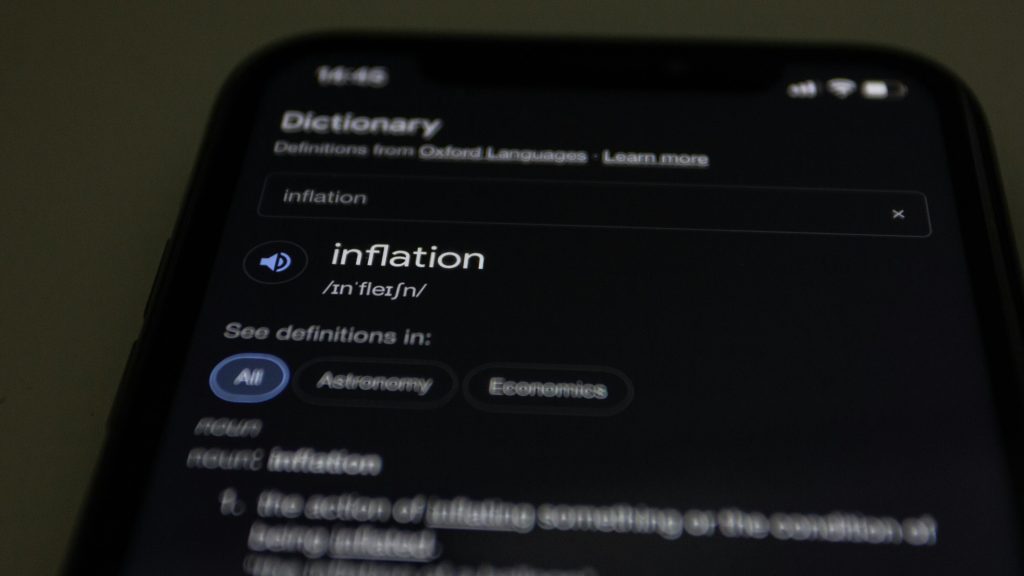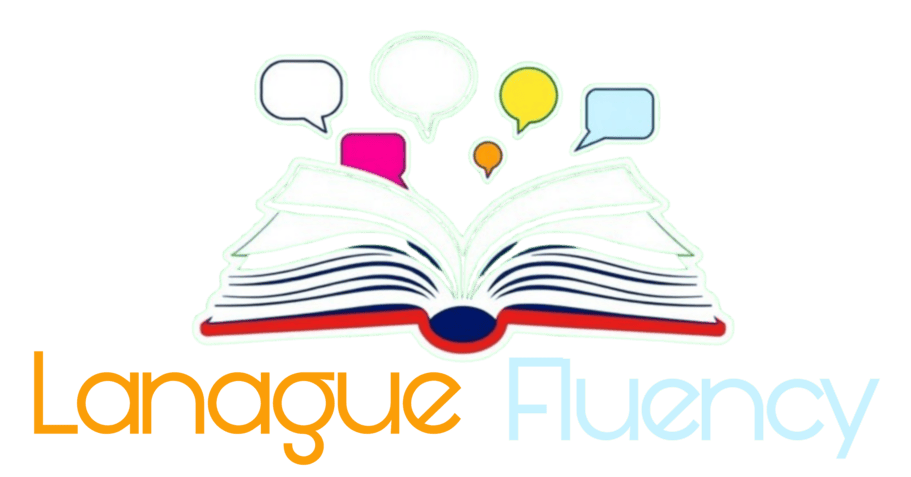AI Tools Enhancing Vocabulary Acquisition
In the realm of language learning, AI tools play a pivotal role in enhancing vocabulary acquisition. Through tailored exercises and interactive platforms, these tools provide learners with a dynamic environment to engage with and internalize new words. By offering personalized vocabulary challenges and contextual learning experiences, AI tools cater to the individual needs of each learner, thereby fostering a more effective and efficient learning process.
Moreover, AI tools leverage advanced algorithms to analyze language patterns and optimize vocabulary retention. Through adaptive learning paths and real-time feedback mechanisms, learners can track their progress and identify areas for improvement. This continuous cycle of assessment and refinement not only bolsters vocabulary acquisition but also instills a sense of achievement and motivation in learners, keeping them actively engaged in the learning journey.
AI Tools Improving Pronunciation Practice
With the advancement of AI technology, language learners now have access to innovative tools that can significantly enhance their pronunciation skills. By utilizing AI tools specifically designed for improving pronunciation practice, students can receive targeted feedback on their speech patterns and pronunciation accuracy. These tools analyze the user’s spoken language in real-time, identifying areas for improvement and offering suggestions for enhancing pronunciation clarity and accuracy.
Moreover, AI tools for pronunciation practice often incorporate interactive exercises and simulations that allow students to practice speaking in various contexts and scenarios. This hands-on approach enables learners to engage actively in the language learning process, honing their pronunciation skills through practical application and repetition. Additionally, the instant feedback provided by these AI tools allows students to track their progress over time, motivating them to continue practicing and refining their pronunciation skills.
AI Tools Providing Instant Feedback
AI tools offering instant feedback have revolutionized the language learning experience, providing learners with immediate corrections and guidance. This real-time feedback allows individuals to rectify mistakes promptly, leading to quicker progress and improved accuracy in language usage. By receiving instant feedback on pronunciation, grammar, vocabulary, and overall language proficiency, users can make necessary adjustments in their learning journey without delays.

The instant feedback provided by AI tools helps learners stay motivated and engaged in their language acquisition process. The timely corrections and suggestions offer a sense of support and encouragement, boosting learners’ confidence and fostering a positive learning environment. With the ability to address errors as soon as they occur, individuals can build a strong foundation in the language and develop their skills more effectively.
AI Tools Personalizing Learning Experience
One of the significant advantages of AI tools in language learning is their ability to personalize the learning experience for each individual user. By analyzing data such as proficiency level, learning pace, and areas of improvement, AI tools can tailor lessons and exercises to meet the specific needs of learners. This personalized approach ensures that learners receive targeted practice and feedback, ultimately leading to more effective language acquisition.

Moreover, AI tools can adapt to the learning preferences and styles of users, making the language learning process more engaging and enjoyable. Whether a learner prefers visual aids, interactive activities, or gamified exercises, AI tools can cater to these preferences to create a customized learning journey. This personalized experience not only enhances motivation and engagement but also accelerates the overall language learning progress.
AI Tools Offering Interactive Language Exercises
AI tools that offer interactive language exercises have revolutionized the way individuals engage with language learning. These tools provide a dynamic and engaging platform for users to practice their language skills in a fun and interactive way. By incorporating elements of gamification and interactivity, these tools not only make the learning process more enjoyable but also help users retain information more effectively.

Furthermore, interactive language exercises offered by AI tools cater to a wide range of learning styles and preferences. Whether users prefer visual, auditory, or kinesthetic learning approaches, these tools offer a variety of interactive exercises to suit individual needs. This personalized approach to language learning ensures that users stay motivated and engaged throughout their learning journey, ultimately leading to improved language proficiency and fluency.
AI Tools Facilitating Grammar Correction
AI tools designed to facilitate grammar correction have revolutionized the way language learners improve their writing skills. These tools utilize advanced algorithms to detect and correct grammatical errors, such as incorrect verb conjugations, punctuation misuse, and subject-verb agreement issues. By providing real-time feedback on grammar mistakes, learners can instantly learn from their errors and make necessary revisions to enhance the overall quality of their written work.

Furthermore, AI grammar correction tools offer learners personalized suggestions for improvement based on their unique writing styles and proficiency levels. This personalized approach helps learners target specific areas of weakness and gradually strengthen their grammar skills over time. By incorporating AI technology into the language learning process, individuals can effectively refine their writing abilities and communicate more accurately and confidently in the target language.
AI Tools Enhancing Listening Skills
One of the key aspects of language learning is the ability to listen and comprehend spoken words. AI tools play a vital role in enhancing listening skills by providing learners with a variety of audio materials and exercises to practice their listening comprehension. These tools can offer a range of listening activities, such as podcasts, conversations, and dictations, allowing learners to expose themselves to different accents, speeds, and contexts, thus improving their ability to understand and interpret spoken language effectively.

Moreover, AI tools for enhancing listening skills often come equipped with features like interactive quizzes, comprehension tests, and real-time feedback, offering learners the opportunity to assess their listening abilities and track their progress over time. By engaging in dedicated listening practice through these AI-powered platforms, language learners can sharpen their auditory skills, boost their confidence in understanding spoken language, and ultimately become more proficient and fluent speakers.
AI Tools Offering Real-time Translation
In today’s digital age, the demand for real-time translation has become increasingly crucial in breaking down language barriers and fostering global communication. AI tools offering real-time translation are revolutionizing the way individuals interact across languages, enabling seamless conversations and collaborations regardless of linguistic differences. By leveraging advanced algorithms and machine learning, these tools can instantly translate spoken or written words into multiple languages, providing users with immediate access to accurate and coherent interpretations.

The ability of AI tools to offer real-time translation has significant implications for various sectors, including business, education, travel, and diplomacy. Companies can now engage with international clients and partners more efficiently, students can access educational resources in different languages, travelers can navigate foreign countries with ease, and diplomats can facilitate dialogue without the constraints of language barriers. As these AI tools continue to evolve and improve, the potential for enhanced cross-cultural communication and understanding becomes increasingly promising, shaping a more connected and inclusive global community.
AI Tools Providing Cultural Insights
AI tools have proven to be invaluable in providing learners with cultural insights, enhancing their understanding of the nuances of a language. By incorporating real-world examples, customs, traditions, and idiomatic expressions from different cultures, these tools offer a comprehensive view of how language is intertwined with societal practices and beliefs. This exposure to cultural contexts not only enriches the learning experience but also broadens the learner’s perspective, fostering greater cultural awareness and sensitivity.
Furthermore, AI tools analyzing cultural references in language usage help learners navigate diverse social interactions more effectively. Understanding the cultural significance behind certain words or phrases enables learners to communicate more authentically and avoid potential misunderstandings. In essence, these tools not only facilitate language acquisition but also serve as cultural guides, bridging the gap between language proficiency and cultural competence.
• AI tools provide learners with real-world examples, customs, traditions, and idiomatic expressions from different cultures
• Exposure to cultural contexts enriches the learning experience and broadens perspectives
• Analyzing cultural references in language usage helps navigate diverse social interactions effectively
• Understanding cultural significance behind words/phrases enables authentic communication and avoids misunderstandings
• AI tools serve as both language acquisition facilitators and cultural guides
AI Tools Customizing Lesson Plans
One of the remarkable features of AI tools in the realm of language learning is their ability to customize lesson plans according to the individual needs and preferences of learners. This personalized approach ensures that each student receives targeted instruction tailored to their specific strengths and areas for improvement, ultimately enhancing the efficiency and effectiveness of the learning process. By analyzing data on a student’s performance, progress, and learning style, AI tools can dynamically adjust lesson plans, providing a more engaging and fruitful learning experience.
Furthermore, the customization of lesson plans by AI tools fosters a student-centered approach to language learning, empowering learners to take ownership of their educational journey. Through the adaptation of content, pace, and difficulty level to match the unique requirements of each student, AI tools help create a more supportive and inclusive learning environment. By catering to the diverse learning needs and preferences of individuals, these tools enable students to maximize their potential and achieve greater success in mastering a new language.
AI Tools Tracking Progress and Performance
Language learners often find it challenging to keep track of their progress and performance accurately. However, with the advent of AI tools in education, tracking progress and performance has become more convenient and efficient. These tools provide learners with real-time feedback on their language learning journey, allowing them to monitor their advancements and areas that require improvement more effectively.
By utilizing AI tools that track progress and performance, language learners can set personalized goals based on their current proficiency level. These tools offer detailed insights into the learner’s strengths and weaknesses, enabling them to focus on specific language skills that need enhancement. Additionally, the data generated by these tools can help educators tailor their teaching strategies to meet the individual needs of each learner, ultimately leading to a more personalized and effective learning experience.
AI Tools Encouraging Active Engagement
Effective language learning often hinges on active engagement, and AI tools play a crucial role in fostering this involvement among learners. By incorporating gamification elements such as quizzes, challenges, and interactive exercises, these tools make language learning more enjoyable and motivating. The immediate feedback provided by AI tools also encourages learners to continuously practice and improve their language skills without feeling discouraged.
Moreover, AI tools facilitate real-time interactions through chatbots and virtual tutors, creating a dynamic learning environment that simulates authentic conversations. This real-time engagement not only enhances learners’ speaking and listening skills but also boosts their confidence in using the target language. Overall, AI tools promoting active engagement not only make language learning more interactive and enjoyable but also empower learners to take ownership of their learning journey.
AI Tools Supporting Multi-language Learning
Modern AI tools are revolutionizing the landscape of language learning by offering support for mastering multiple languages. Students and enthusiasts can now immerse themselves in a diverse array of linguistic experiences through interactive platforms that cater to various language pairs. These tools not only facilitate the acquisition of new languages but also promote a holistic understanding of different cultures and communication nuances, fostering a well-rounded linguistic skill set.
Moreover, AI tools supporting multi-language learning enable users to seamlessly transition between different language structures and vocabularies, promoting a flexible and adaptive approach to linguistic proficiency. By providing a consolidated platform for exploring the intricacies of diverse languages, these tools empower learners to embrace the challenges of multilingualism with confidence and ease. The personalized feedback and interactive exercises offered by AI tools further enhance the language learning journey, paving the way for a more immersive and engaging educational experience.
AI Tools Enhancing Language Fluency
AI tools have revolutionized the way individuals approach language learning, particularly when it comes to enhancing fluency. By providing personalized exercises and real-time feedback, these tools offer learners the opportunity to practice speaking, reading, and writing in a way that mimics real-life conversations. Through interactive exercises and adaptive learning paths, AI tools help users build confidence in expressing themselves in the target language.
Additionally, AI tools go beyond traditional methods by incorporating speech recognition technology that not only corrects pronunciation but also helps individuals improve their intonation and rhythm. This real-time feedback allows learners to make immediate adjustments, ultimately leading to a more natural and fluent delivery. With the continuous support of AI tools, individuals can immerse themselves in the language learning process, making strides towards achieving fluency in a shorter period of time.
AI Tools Facilitating Peer Collaboration
Peer collaboration is a key component in language learning that allows individuals to practice and improve their language skills through interaction with others. AI tools have revolutionized the way learners collaborate with their peers by providing virtual platforms where they can engage in meaningful conversations, exchange feedback, and work together on language tasks. These tools simulate real-life communication scenarios and create a supportive environment for learners to practice speaking, listening, and writing in a foreign language with their peers.
By leveraging AI tools for peer collaboration, learners can benefit from diverse perspectives, cultural insights, and language variations that their peers bring to the table. These tools encourage active participation, foster collaboration skills, and promote a sense of community among learners. Through collaborative activities facilitated by AI tools, learners not only enhance their language proficiency but also develop important social and communication skills that are essential for effective language use in real-world contexts.
AI Tools Increasing Motivation and Confidence
With the advancement of AI technology, language learning has been revolutionized, particularly in terms of increasing motivation and confidence in learners. AI tools have the capability to provide personalized learning experiences, catering to individual needs and preferences. By offering interactive exercises tailored to the learner’s proficiency level, these tools keep students engaged and motivated to continue their language learning journey.
Moreover, AI tools can boost learners’ confidence by providing instant feedback on their progress and performance. The real-time feedback allows students to track their improvement and identify areas for growth, fostering a sense of accomplishment and confidence in their language skills. This feedback mechanism also encourages active engagement in the learning process, as students receive reinforcement and guidance to keep them motivated and confident in their language learning abilities.
AI Tools Offering Adaptive Learning Paths
Adaptive learning paths in AI tools are revolutionizing the way individuals engage with language learning. By dynamically adjusting to the user’s progress and proficiency level, these tools cater to the specific needs and goals of each learner. Whether someone is a beginner seeking foundational knowledge or an advanced learner aiming to refine their language skills, adaptive learning paths provide personalized support and guidance every step of the way.
Moreover, the flexibility of adaptive learning paths allows users to learn at their own pace, ensuring a customized learning experience that maximizes efficiency and effectiveness. With tailored content and activities based on individual performance, learners can focus on areas that need improvement while also receiving challenges that match their skill level. This adaptive approach not only enhances motivation and engagement but also accelerates language learning outcomes for users of all proficiency levels.
AI Tools Incorporating Speech Recognition Technology
AI tools that incorporate speech recognition technology are revolutionizing the way language learners practice their speaking skills. By leveraging advanced algorithms, these tools are able to accurately transcribe and analyze users’ spoken words, providing instant feedback on pronunciation and fluency. This real-time interaction with the AI not only helps learners identify and correct their mistakes but also builds confidence in their speaking abilities.
Furthermore, speech recognition technology enables personalized learning experiences by adapting to individual pronunciation patterns and pace of learning. This tailored approach allows users to focus on areas where they need the most improvement, leading to more efficient language acquisition. Additionally, the convenience of being able to practice speaking anytime, anywhere, with the AI providing immediate guidance, greatly enhances the overall learning process.
AI Tools Enhancing Reading Comprehension
Reading comprehension is a critical aspect of language learning that AI tools are now aiming to enhance. By utilizing advanced algorithms, these tools can analyze texts and provide learners with detailed insights into complex passages. Through features like highlighting key points, generating summaries, and offering explanations of difficult words or phrases, AI tools help users deepen their understanding of the material.
Moreover, AI tools for reading comprehension often include interactive quizzes and assessments to test learners’ comprehension skills. By providing immediate feedback on answers and guiding users through challenging sections, these tools create a dynamic learning experience that encourages active engagement. Additionally, some AI tools can track individual progress and offer personalized recommendations for further reading materials based on areas of improvement, ultimately aiding in the development of more proficient readers.
AI Tools Providing 24/7 Language Support
AI tools have revolutionized the way individuals learn and practice languages, offering continuous support and guidance regardless of the time of day. With 24/7 language support, learners have the flexibility to engage with their language studies at any hour that suits their schedule. This continuous access to learning resources ensures that users can seek assistance and practice their language skills whenever they feel the need, enhancing their overall learning experience.

Moreover, the availability of round-the-clock language support from AI tools eliminates the constraints of traditional learning environments and time zones. Learners can receive instant feedback, access interactive exercises, and engage in language practice sessions at their convenience, leading to a more personalized and efficient learning journey. This constant accessibility to language support not only fosters independence in learning but also motivates individuals to consistently work towards improving their language proficiency.



